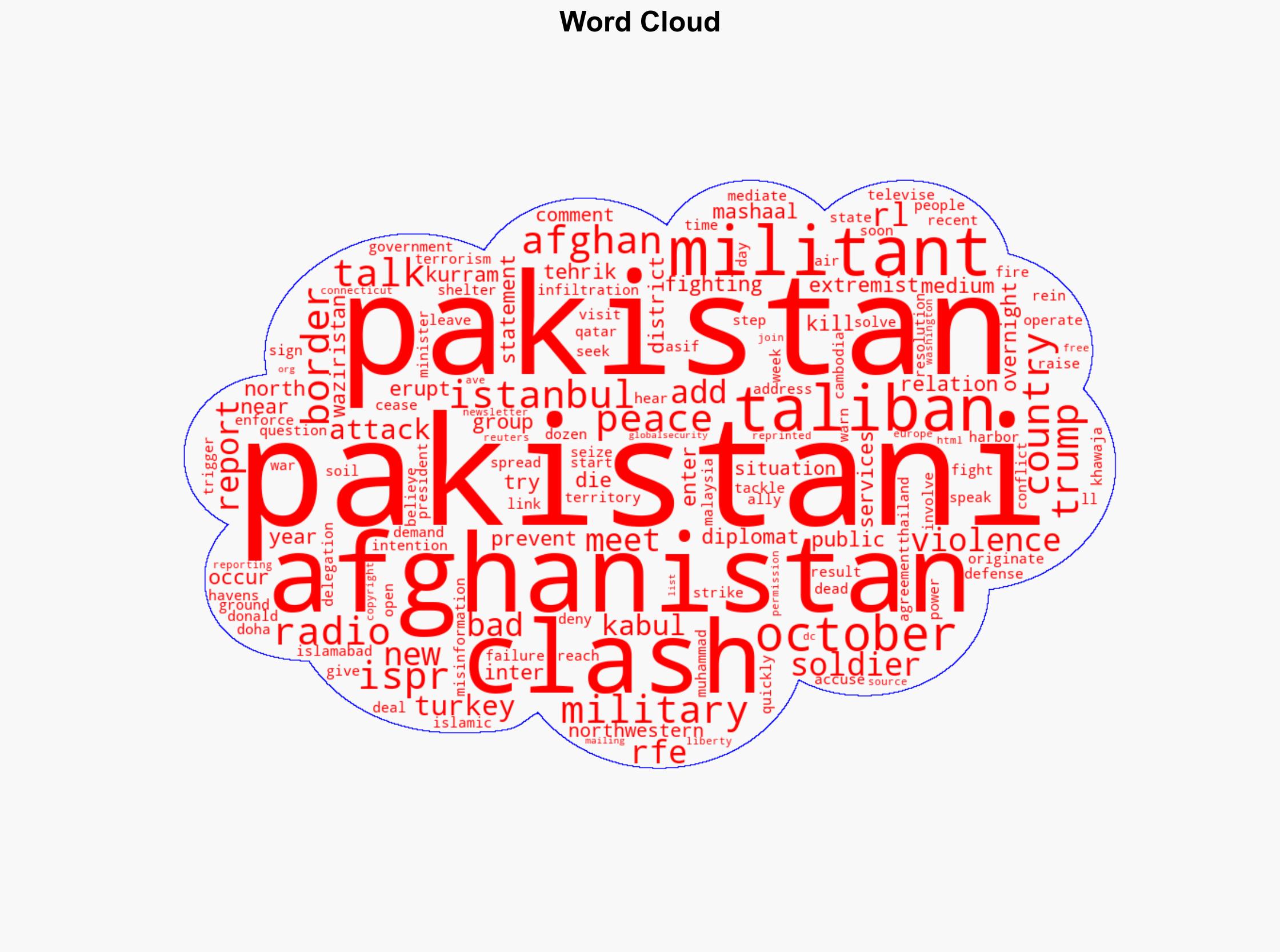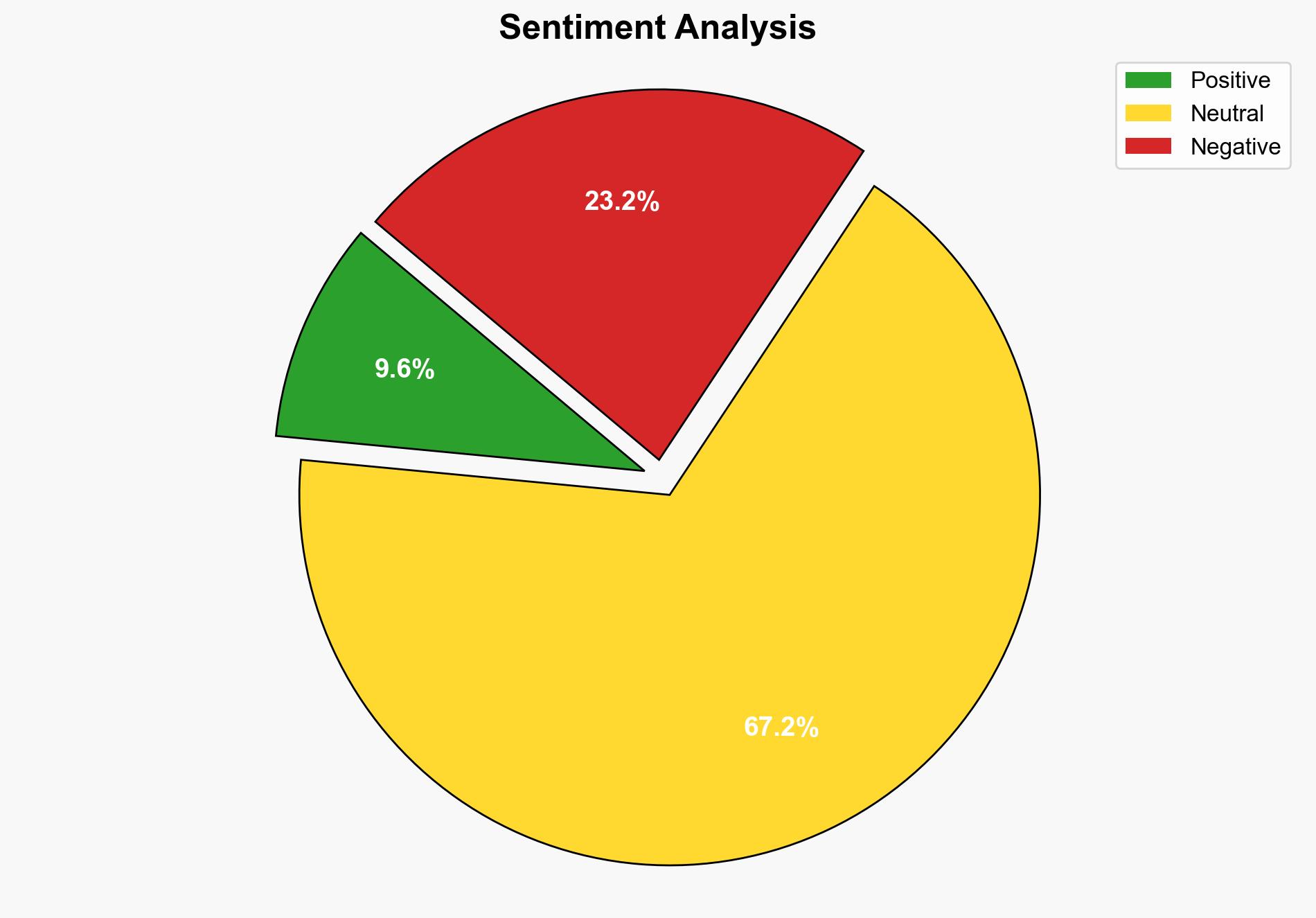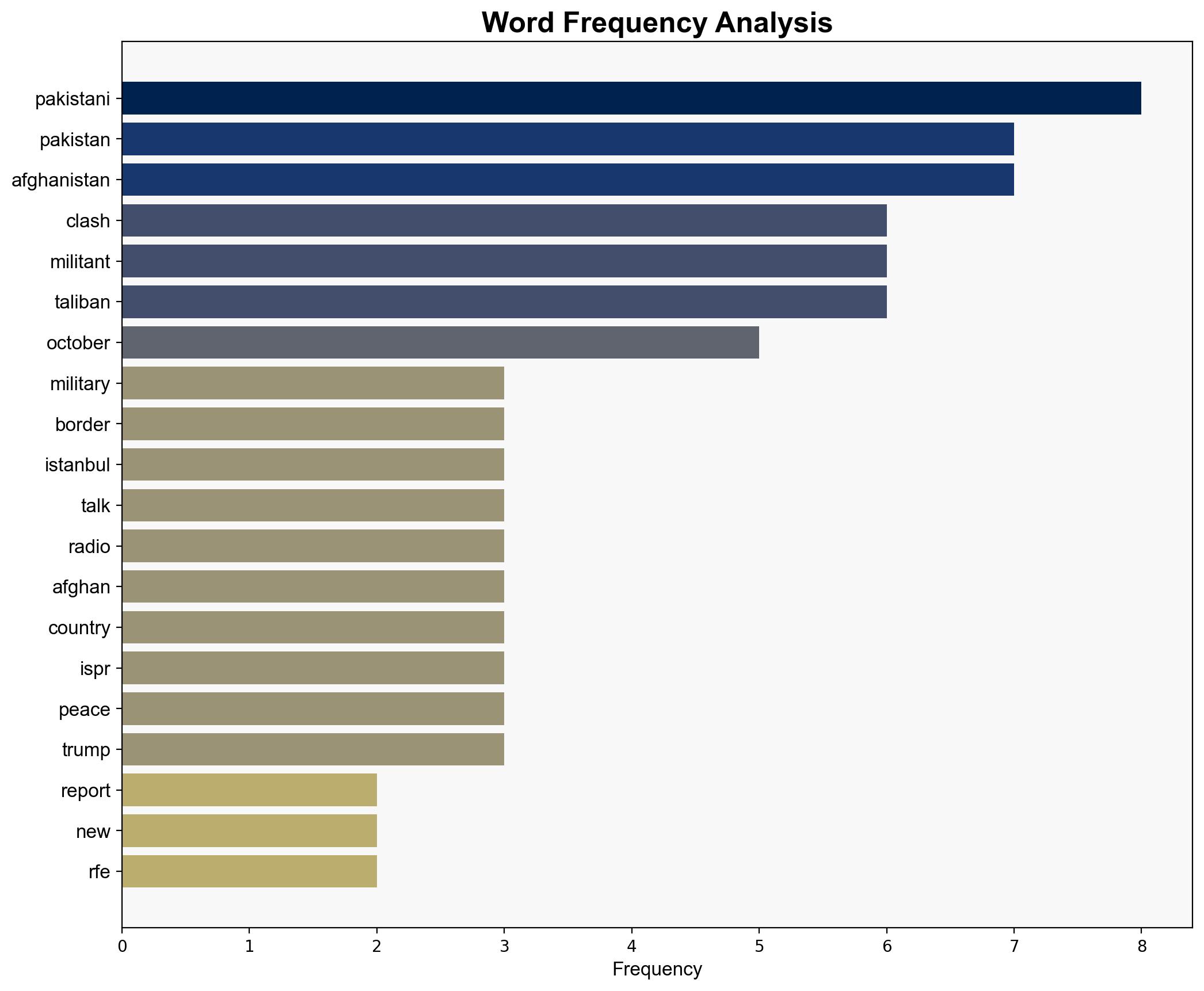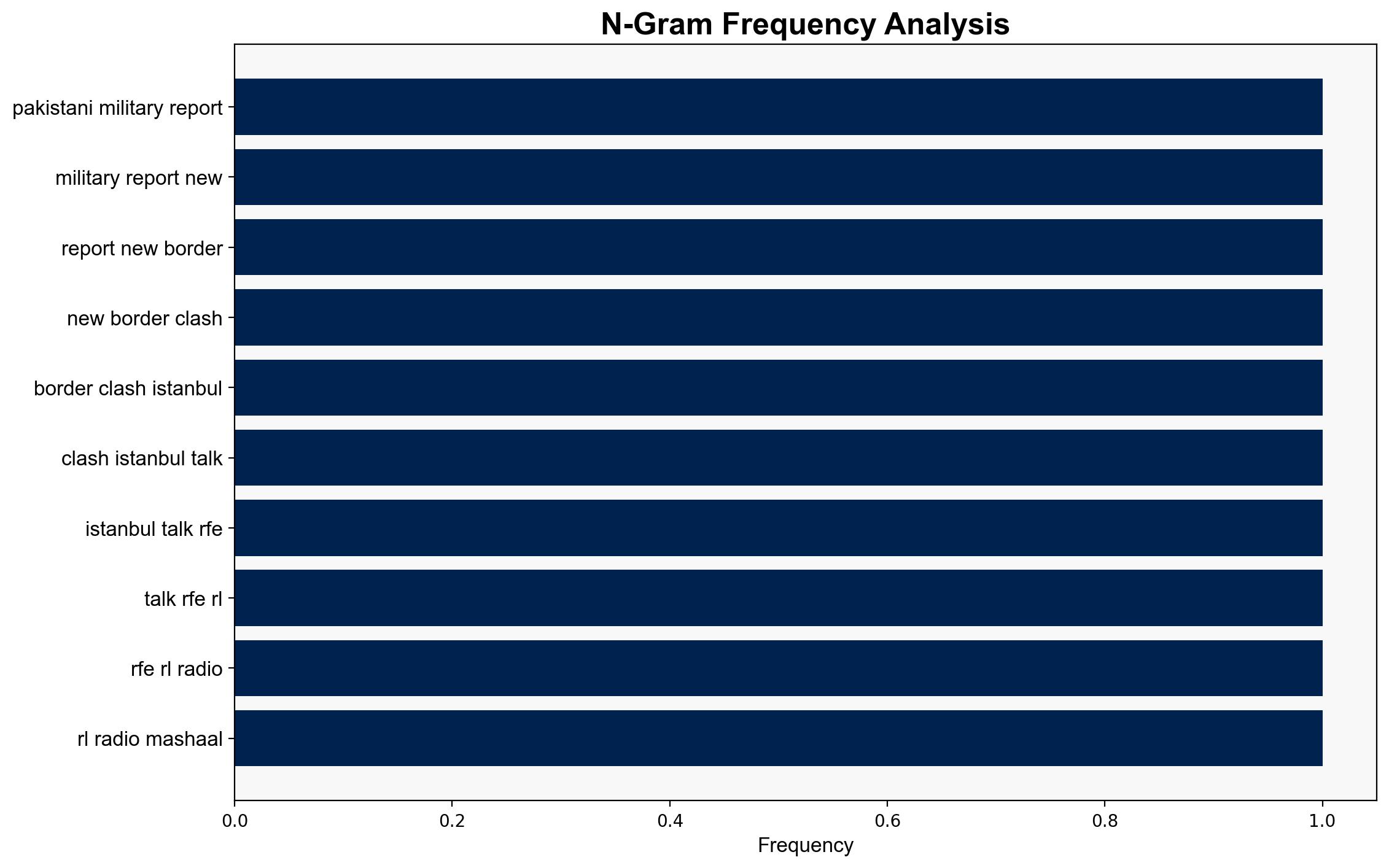Pakistani Military Reports New Border Clashes Amid Istanbul Talks – Globalsecurity.org
Published on: 2025-10-27
Intelligence Report: Pakistani Military Reports New Border Clashes Amid Istanbul Talks – Globalsecurity.org
1. BLUF (Bottom Line Up Front)
The most supported hypothesis is that the recent border clashes are a result of the Taliban’s inability or unwillingness to control militant groups within Afghanistan, leading to increased tensions with Pakistan. Confidence level: Moderate. Recommended action: Strengthen diplomatic engagements with Afghan authorities and international mediators to ensure enforcement of ceasefire agreements and address cross-border militancy.
2. Competing Hypotheses
1. **Hypothesis A**: The clashes are primarily due to the Taliban’s lack of control over militant groups, which are using Afghan territory as a base for operations against Pakistan. This scenario suggests a failure of governance and control by the Taliban.
2. **Hypothesis B**: The clashes are a strategic move by the Pakistani military to pressure the Taliban during Istanbul talks, aiming to gain concessions or international support by highlighting security threats.
Using ACH 2.0, Hypothesis A is better supported by the evidence of ongoing militant activities and the Taliban’s denial of harboring militants, which suggests a possible lack of control. Hypothesis B is less supported due to the absence of direct evidence indicating deliberate misinformation by the Pakistani military.
3. Key Assumptions and Red Flags
– **Assumptions**: Hypothesis A assumes the Taliban’s governance is weak and that militant groups are acting independently. Hypothesis B assumes the Pakistani military has strategic motives to manipulate perceptions.
– **Red Flags**: The Taliban’s denial of harboring militants may indicate either genuine lack of control or an attempt to deflect responsibility. The Pakistani military’s narrative could be biased to justify military actions.
– **Missing Data**: Lack of independent verification of the clashes and the exact nature of militant activities.
4. Implications and Strategic Risks
The continuation of border clashes could escalate into a broader conflict, destabilizing the region further. This may lead to increased refugee flows, economic disruptions, and heightened tensions between Pakistan and Afghanistan. The involvement of international mediators like Qatar and Turkey is crucial to prevent escalation.
5. Recommendations and Outlook
- Enhance intelligence-sharing mechanisms between Pakistan and Afghanistan to address cross-border threats.
- Encourage international mediators to facilitate dialogue and ensure compliance with ceasefire agreements.
- Scenario Projections:
- **Best Case**: Successful diplomatic interventions lead to a sustainable ceasefire and improved bilateral relations.
- **Worst Case**: Escalation into open conflict, drawing in regional powers and exacerbating instability.
- **Most Likely**: Continued sporadic clashes with intermittent diplomatic engagements.
6. Key Individuals and Entities
– Khawaja Muhammad Asif
– Tehrik-e-Taliban Pakistan
– Taliban government
7. Thematic Tags
national security threats, counter-terrorism, regional focus, diplomatic engagement





